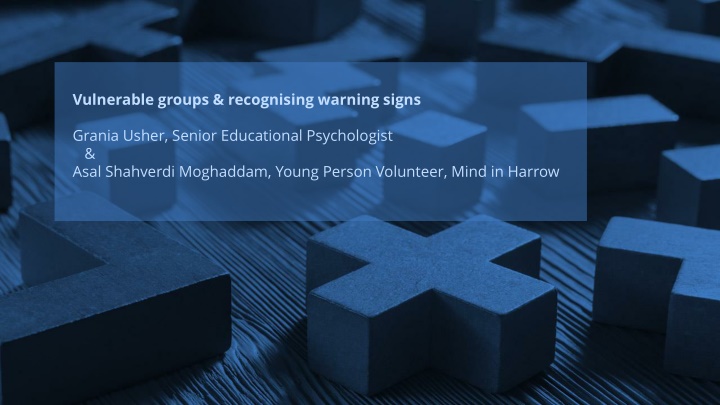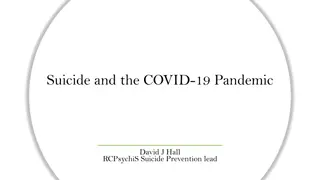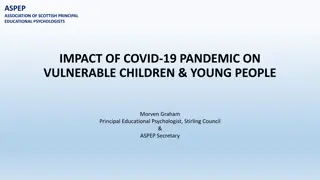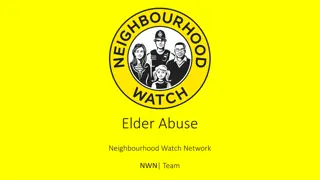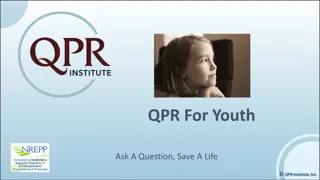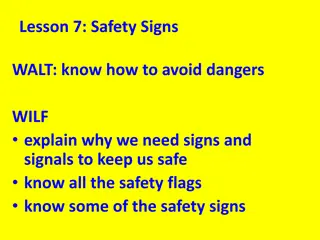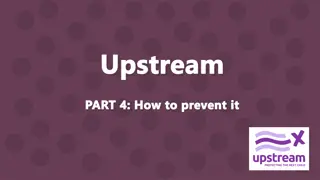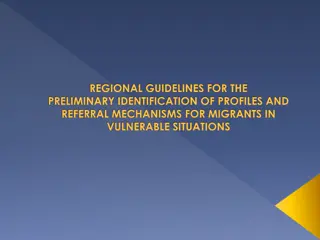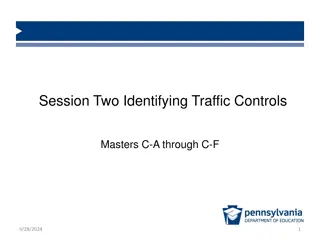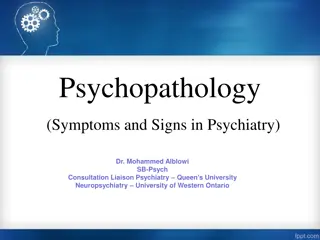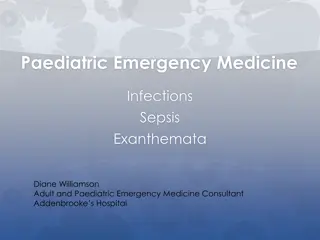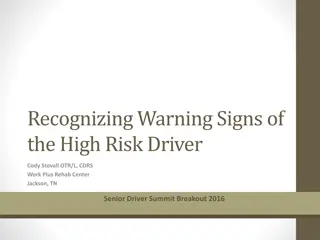Recognizing Warning Signs and Vulnerable Groups During the Pandemic
This article sheds light on groups particularly vulnerable to decreased well-being and resilience amid the pandemic, including Black and Ethnic Minorities, individuals living in poverty or facing domestic abuse, LGBTQ+ individuals, those with pre-existing mental health needs, young carers, and more. Recognizing warning signs and providing support is crucial for these individuals.
Download Presentation

Please find below an Image/Link to download the presentation.
The content on the website is provided AS IS for your information and personal use only. It may not be sold, licensed, or shared on other websites without obtaining consent from the author.If you encounter any issues during the download, it is possible that the publisher has removed the file from their server.
You are allowed to download the files provided on this website for personal or commercial use, subject to the condition that they are used lawfully. All files are the property of their respective owners.
The content on the website is provided AS IS for your information and personal use only. It may not be sold, licensed, or shared on other websites without obtaining consent from the author.
E N D
Presentation Transcript
Vulnerable groups & recognising warning signs Grania Usher, Senior Educational Psychologist & Asal Shahverdi Moghaddam, Young Person Volunteer, Mind in Harrow
Who Might Be Particularly Vulnerable To Decreased Wellbeing And Resilience Applying these frameworks during the pandemic Some groups for whom Covid-19 may increase or exacerbate mental health and wellbeing issues (PHE 2020, NHS 2020, Brooks et al 2020, Waite et al 2020, Wang 2020): Black and Ethnic Minorities (BAME) (NHS 2020): adults at higher risk of dying from Covid-19; sharp increases in anxiety and self-harm amongst BAME children and young people; exacerbated by widespread, structural inequalities and discrimination Those living in poverty, workless households, homeless or in poor housing Families with parental conflict, parental mental ill health, are alcohol or drug dependent Those experiencing domestic abuse, violence and neglect Child sexual abuse and exploitation and harmful sexual behaviours (including online) Contd..
Who Might Be Particularly Vulnerable To Decreased Wellbeing And Resilience Applying these frameworks during the pandemic Contd.. Looked after, fostered and adopted children and children subject to special guardianship orders or wider kinship placements LGBTQ+ people Those with pre-existing mental health needs Young carers Children and young people with special educational needs, learning disabilities and/or autism/neurodiversity Adults who live alone This list is not exhaustive and people may be in more than one category.
HeadsUp: Helping you to help me
What have other young people have said I tend to turn my phone off and become very withdrawn. It becomes very difficult to talk to me and hold a conversation. I feel like I lose a lot of my personality. I also get really tired and sleep a lot, so I become very irritable and snappy I notice that the worse I get, the angrier I become. When I m bad I will just flip out about the most minor things. I find that I channel all of my anxiety, depression and fear into anger and it pushes people away I might wear long sleeves if I have hurt myself I become very fidgety and move my arm or leg constantly I won t speak much and I also don t put effort into my appearance
Worrying about things before they happened Worrying about friends, family, safety, school and activities Having a phobia about death Anxiety Frequent stomach aches, headaches or physical symptoms Sleep disturbance Worry about being away from home
Lack of enjoyment in usual activities or lessons Change in appetite and weight Tired and lack of energy Depression Spending less time with friends Difficulty concentrating Caring less about school
Questions I wish people had asked me It s ok to want to keep things to ourselves, but did you want to tell me more about *insert topic*? You look sad/worried today. Do you want to have a chat about it/is there anything I can do to help? How do you feel about things changing? What can I do to help? What difficulties are you facing now? How are you coping since *insert event*? You don t seem your usual self today. Would you like to talk about anything? Is there anything you want to talk about? What makes you feel calm?
Ask twice Communicate and listen without judgement Tell them you re there for them, whether now or in the future Inform and give support but don t problem-solve Verify next steps Encourage the person to seek support
